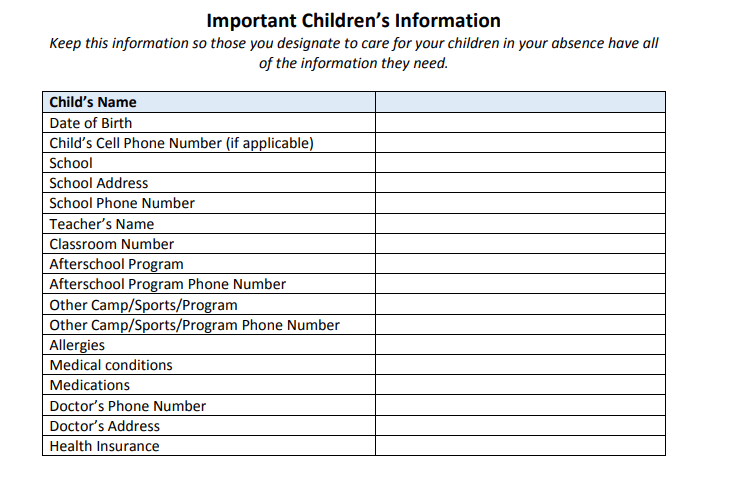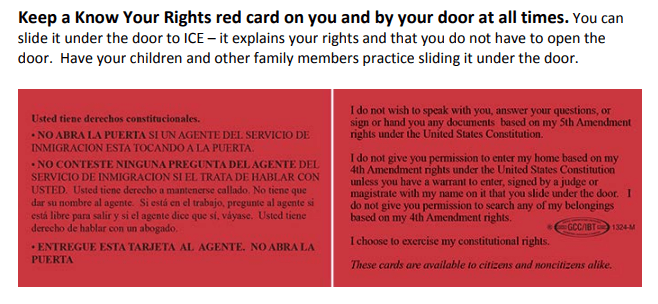What To Do If You Are Arrested Or Detained
Today’s topic is one that is very important, because we’re talking about this during the holiday season, but this is a video that is useful throughout the year, particularly for the immigrant community. What we’re talking about is what you guys need to know when you have an interaction with the police – whether you get detained for DWI or it’s on the street or whatever the interaction is.
There are some key things to know. And we want you guys to have this information, particularly in the last days of the Trump administration. And also, it’s the holidays, and it’s been a rough year.
People get out on the roads because you want to go be with your families; drinking happens. It is the time when arrests happen more often.
Amber Vazquez joins us to discuss criminal defense matters. Her website is CriminalLawAustin.com, her phone number is 512-220-8507.

Interactions With The Police
What should you do and what shouldn’t you do?
As hard as this year has been, as much as we want to go see our family and our friends for the holidays and go drive somewhere and maybe have a few drinks. As much as we are craving interaction with the people we love right now, don’t put yourselves at risk!
Right now we’re in a difficult time because we’ve had a group of rights assured to us in the bill of rights. And as of March of 2020 because of the covid pandemic, some of those are no longer applicable.
For instance, the jury system, Travis County hasn’t had a jury trial, so there’s no remedy for anyone to hold the government accountable now.
You just stay in jail. And it’s coupled with the problem that right now, jail standards for Texas are no longer doing onsite inspections and no one is requiring any sort of testing for COVID or tracing for that matter.
And they fought hard and are absolutely not interested in testing everyone. So it’s a dangerous circumstance.
Right now, the biggest thing is to avoid getting processed.
Avoid anything that could get you in jail, because right now there’s no way out. And what’s happening though, is that some people are getting arrested for minor crimes that have an immigration hold.
No jury trials in Texas means anyone who gets apprehended or arrested is facing that issue. And then add on, if you’re undocumented, you get an ICE hold.
It is imperative right now for people to shelter in place and try to avoid contact.
Because if you do get in custody for any reason, the most important thing to realize is that you need a team between a criminal and an immigration attorney immediately, and to absolutely not say anything.
When there is an immigrant with a criminal issue, you’re going to need both a good criminal defense attorney and they are going to partner with an immigration attorney to make sure that the detention logistics are managed in your best interest.
Your immigration attorney will help make sure that any plea offer you accept will not have immigration consequences.
This is an intersection of two areas of law in which you need an expert in each area.
Another problem is the way that you say your name because it may be different from the documentation papers that they have.
Depending on how you usually say your name, it could be misinterpreted as a failure to ID, which is a crime that you can get arrested for. Make sure it is identical to the paperwork that you have. Because that can actually evolve into an arrest if it differs in any way.
It’s important to identify yourself, exactly as your name is written on your document. What that means is, don’t use your nickname.
Use your name, your real name as it is on your document. You don’t want to get arrested for failure to ID.
You have to be able to give your date of birth and your address when you are pulled over or detained. That’s it. You don’t have to discuss your legal status. Get an attorney and that’s when you can talk about that other stuff. All you need to do is identify yourself in an interaction with the cops and get yourself a lawyer like Amber.
If you’re driving and you get stopped, what should you do?
The key is the second you see those lights, pull over immediately.
Then place your hands on the steering wheel on position “10P.M and 2P.M” where they’re visible. If you’re a person of color, the odds of something violent or erupting are higher. Keep your hands visible. Do not start looking for your papers. Don’t move. Don’t do anything until they tell you to.
Resist the need to start explaining. Just wait. You have to resist because everything is a case at that point. Remain calm, keep your hands on the wheel. Don’t look for things. Wait for them to ask you.
And tell the officer before you reach for something, for your own safety, say, “Can I reach into my bag to get my wallet so I can get my papers.” If somebody does have a weapon and in any way it’s visible, make sure you indicate it to the officer.
So what does the ICE hold mean and what happens after?
The ICE hold is when someone is booked in jail and their fingerprints are taken. This flags the system for ICE agents to review them, if you are not a US citizen. So if you’re a permanent resident, they’re going to review whether these charges would make you deportable. And if you’re undocumented, obviously you’re going to get an ICE hold.
Once your criminal issue is resolved or your criminal detention is resolved, all that means is that then ICE is going to come and take you into custody within 48 hours.
You get taken to the ICE Processing Center, they get processed and then transfer it into an ICE Detention Center.
We do have some ability as immigration attorneys to do some advocacy at that level, when you’re with ICE, for extreme cases in compelling circumstances to not get transferred to detention.
But 95% of people with an ICE hold just get processed and sent to an immigration detention center. So then that’s when we would step in and work on that case.
We can help when someone is in jail with an ICE hold. But we don’t do criminal defense. We partner with criminal defense attorneys like Amber.
Once you get bonded out of jail or your charges are dismissed, you are taken into ICE custody. We will advocate at that point for release. Most people are transferred into ICE custody and then we’ll begin working.
The majority of our cases involve working on a bond to get our clients out. I will say it’s harder these days to get a bond for people who have bigger criminal charges. And so a lot of those cases we’re having to move forward on defensive deportation in detention.
The most common defense that we seek for our clients is something called Cancellation of Removal, which is available to people who have been in the US for 10 years, have good moral character and have US citizens or permanent resident family members who would suffer if they get deported.
That’s our most common case. We are usually seeking bond plus removal defense. If you have a pending criminal charge, bond is difficult.
Now, it is not routine for people who maybe just have one DWI charge to be issued a bond, and then they’re faced with staying in detention while they fight their case.
Which is awful. It’s really, really awful to be in jail at all, ever. And particularly during a pandemic when the jails are not protecting their detainees against COVID. It really is important to think about these issues before you let loose and go out, put yourself in danger. now it’s hard.
I know we want to see people. I know it’s been a hard year. But just hold on a little bit longer. There’s a light at the end of this tunnel.
What Do You Do If ICE Comes To Your House?
The rule of being at home, and how to protect yourself applies to the police as it applies to ICE. Both of them have to have a signed warrant by a judge with the name of the person living in the home, spelled correctly, before they can enter. So it’s up to you to let them in or not.
You can ask them to show their warrant through the window or slip it under the door and double check to make sure it’s signed by a judge. They will often try to show you a DHS form signed by an ICE agent. But it must be a warrant signed by a judge, not DHS.
Make sure that the name is spelled exactly right and it contains the name of someone who lives in the home. And if they have that, then they can enter the house legally. And the people who are there are vulnerable.
Everyone who’s undocumented in the home is vulnerable once they’ve entered.
If they don’t have a signed warrant, the name isn’t spelled correctly, tell them to go away. They cannot come in. But then of course you have to be aware that they’re probably going to be waiting for you.
They’re going to park outside the house. They’re going to wait down the street.
And so if you’ve temporarily paused an immigration action in your home, that would be an immediate time to give us a call. And then we can look at ways that we can stop deportations.
If you have an outstanding order of deportation in absentia, because you didn’t attend the hearing, for example, we can file a motion to reopen, which contains an automatic stay of deportation.
So there are some things that we can do for our clients to halt the deportation. Ideally, we investigate and work on this stuff before ICE is at your door.
Family Preparedness Plan – Immigrant Legal Resource Center
https://www.ilrc.org/sites/default/files/resources/family_preparedness_plan.pdf
This is the document that any undocumented person should go through and exercise like this. As un-fun as it is, it is adulting, as they say.
This is how to prepare if you’re undocumented. Particularly if you’re a parent, what to do to be ready for an immigration enforcement action. Have a child care plan, obviously know who’s going to watch for your kids. Talk about your immigration options. Know your rights: your right to remain silent, your right to not sign any documents.
We’ve had friends, who have access to information who have succumbed to the threats of immigration agents upon apprehension and have been told “You don’t qualify for anything. You’re going to stay in detention. Just sign this deportation.” And they do it.
Don’t listen to them! The ICE agents are not there to help you. They’re not there to give you legal advice. Their job is to get you to agree to a deportation so they can avoid putting you in a lengthy court process.
Don’t sign anything. Don’t talk to them. That is your right. All you have to do is identify yourself. That’s it. Identify yourself, your date of birth and your address. Talk to your kids about your plan.
Obviously, this is a very personal thing for a family and how you do it depending on the age of your children. But your kids know. That’s one thing that we’ve realized, is that kids know when their parents are at risk of deportation and they worry about it anyway, whether or not you talk to them about it.
Help them understand that “Mommy and daddy have a plan. We’ve talked to a lawyer. Aunt Sarah is going to watch you, if something happens.” This way everybody’s oriented and on the same page.
Childcare: write down instructions on medical conditions or medications for your kids.
Have a child caregiver’s authorization affidavit signed. And there’s one in this document that you can just print and sign yourself. Make sure your kids have passports just in case the worst happens, in case mom and dad get deported.
Your kids want to be able to come and be with you.
So make sure that they have the capacity to travel internationally. If they’re US citizens, just go ahead and get them US passports.
Inform family and emergency contacts about how to find you. This is the detainee locator : https://locator.ice.gov/odls/homePage.do.

This is a great form to fill out children’s information. Date of birth, cell phone numbers, school, teacher, afterschool, sports, allergies, medical conditions, doctor’s information, health insurance information. Just fill out this form. : Emergency numbers, family contacts, mom, aunt, guardian, miscellaneous numbers, doctor, pediatrician, dentist, car.
What’s the consulate? What’s your country’s consulate? What’s their phone number? What’s the attorney’s phone number? Fill this out, put it in a folder in a safe place in the home. And then if something happens, everybody knows where that folder is.
A simple list of important documents to put in this folder includes: Passports, birth certificates, marriage license, and the authorization for the caregiver.nIf you have any restraining orders against an abusive ex, maybe, include a copy of that. Any immigration documents, any number, ID documents, make copies, take a picture with your phone, have them in several locations.
Social security card, or your ITIN number, a registry of birth abroad, children’s information, emergency numbers, all the forms contained in this document.
Medical information and any other documentation, like how to access your bank. What’s your bank account number? What are the credit cards? And then of course find out about your immigration options.
Finally, know your rights, remain calm. Don’t freak out. People make bad decisions when they’re panicking. Take some deep breaths in the moment.

This is a know your rights card that you can print and cut. It’s in English and Spanish. You can have it on both sides. Iit says, I do not wish to speak with you, answer your questions or sign or hand you any documents based on my Fifth Amendment rights under the United States constitution.
I do not give you permission to enter my home based on my Fourth Amendment rights under the United States constitution, unless you have a warrant to enter signed by a judge or magistrate with my name on it, that you slide under the door.
I do not give you permission to search any of my belongings based on my Fourth Amendment rights. Carry this with you. If you don’t speak English fluently, have it in your wallet, have it in your home. Just show that to the police officers. When talking to ICE, you have the right to remain silent.
Number one takeaway: You do not have to talk to ICE. You do not have to talk to the police about your legal status. Let us help you with that. Let your criminal defense attorney help you with that. The only thing you have to do in an interaction with the police is remain calm, cooperate physically, and identify yourself.
And then finally, know your country’s consulate, particularly for Mexican nationals. The Mexican Consulate here in Austin is really dedicated to helping their people handle ICE interactions and detentions.
They’ll actually go down to the processing center and help facilitate communications with the family. They’ll help with the kids stuff. They’ll help bring items that you might need.
By having that information in hand, you can figure out how to call the Mexican consulate and they’re there for you. They’re really active and they’re good.
The protection department is really good and they’re interested in what’s happening in their community.
We have periodic calls with them where they’re checking with lawyers and nonprofits. Like “What are we seeing? What do we need to know about our raids taking place? How do we get ahead of these issues?” And so, they are there to help you guys in the event of a detention, especially at the Mexican consulate.
Give yourself the gift of planning ahead with that document that we just shared with you. It’s one of those things that once it’s done, just gives the sense of relief that you don’t even know you needed.
Alien Number
I’ll say, the big thing about the A number or alien number, it’s basically how you’re tracked through the system, through the ICE system.
It’s the first thing that you want to share when you’re in detention, as soon as they give it to you, as soon as they assign it to you, if you don’t have one already, go ahead and share it with your family members.
Because that’s going to make everything so much easier for them on locating you and also for us or any attorney, if they’re working with one. So I think that’s the most important thing to share when you talk to your family members.
And if you are like “What’s the A-number? How do I get that?” Just ask them. Anytime anyone’s in ICE custody, they’re going to know that number and that’s how you give them money to put in your commissary to make phone calls.
DACA Updates
Anyone who’s eligible for DACA, get your applications in, it’s time to do it!
The most important thing right now is if you’re eligible, this is a window of opportunity. Just do it, get your applications in. And for anyone who’s like, “I’m eligible for a green card, for DACA, for VAWA, for U visa, for citizenship, but I’m just going to wait until Biden’s in office.”
We totally understand.
We hear you guys, but the deal is, it takes about a month to prepare most of these applications to get all the documents together, to prepare the forms.
And there’s a lot of people that like you, who are thinking “I’m not doing anything until Trump’s out of here.” Which is understandable, but if you want to take advantage of your eligibility under Biden and be at the head of the line, get ahead of the group of people who are like you, waiting, and start now!
If You Start A Green Card Application Now, We’re Probably Not Going To File It Until After January 20th Anyway.
Bottom Line
We’ve had a rough year. People want to be with their families. And we want to make sure you guys are prepared in the case of police interaction or God forbid a detention.
So, the main message from our friend Amber Vasquez, a criminal defense attorney, says shelter in place and stay home.
It’s not the time to go out and party because jury trials are not happening. So whether you are an immigrant or US citizen and you get detained, you don’t get to go to a jury trial. There are people who have been languishing in jail, because of this issue all year in 2020.
Stay home! As much as you want to go out, just stay home. If you are out and you get apprehended or detained by the police, all you have to do is identify yourself accurately as your name is on your ID document. You need your date of birth. You need your address and you need your correct name and then that’s it. You don’t need to discuss what you were doing, what your immigration status is. None of that, all that comes later. And that’s what we handle as your lawyers. We’ll partner with a criminal defense attorney to make sure you get the best outcome.
Frequently Asked Questions About Getting Arrested Or Detained
Contact A U.S. Immigration Attorney Today!
Categories
How To Find Us
What Our Clients Say
“This Lawfirm is great, very professional and helpful. I love that they are always in communication and always available for when you have questions . 100% recommended by me and my family. Thank you Lincoln-Goldfinch Law – Abogados de Inmigración”





